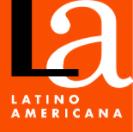Epistemología y política de los Science and Transnational Studies
Palabras clave:
estudios de la ciencia, estudios transnacionales, historiografía, métodos, epistemologíaResumen
Cuando se consideran los trabajos producidos en la historia de las ciencias y en la historiografía transnacional, es notable la amplitud de preguntas planteadas, la profusión de las ideas y los análisis, la riqueza y la variedad de lo que es propuesto. Por otra parte, notamos también la presencia reiterada de profesiones de fe metodológicas y declaraciones de intención, sobre las categorías y reglas que hay que poner en ejecución. Este artículo considera sucesivamente dos preguntas. En primer lugar, aquello que nos aportan en términos sustanciales, lo que estas historiografías nos enseñan sobre las ciencias y las relaciones transnacionales, lo que ha sido desplazado y lo que es reabierto. En segundo lugar, el artículo analiza estas declaraciones de principio. Se defiende la idea de que estamos frente a dos grandes corpus de interpretación de relevancia, heurísticamente productivos, que en la práctica se ven constantemente mezclados por parte de los historiadores, pero que, intelectual y políticamente, resulta esencial considerarlos en relación con las epistemologías, las ontologías y las posturas que los fundan.
Citas
Anderson, Philip Warren (1972). “More is different”, Science, Vol. 177, N° 4047, pp. 393-396.
Barry, Andrew (2001). Political Machines. Governing a Political Society. London, The Athlone Press.
Bayly, Christopher (2004). The birth of the modern world, 1780–1914: Global Connections and Comparisons. Oxford, Blackwell.
Biagioli, Mario (1993). Galileo Courtier, the practice of Science in the culture of absolutism. Chicago, Chicago University Press.
Bloor, David (1976). Knowledge and Social Imagery. London, Routledge y Kegan Paul.
Boltanski, Luc (2009). De la critique. Précis de sociologie de l ’émancipation. Paris, Gallimard.
Boltanski, Luc y Laurent Thévénot (1991). De la justification. Les économies de la grandeur. Paris, Gallimard.
Bonneuil, Christophe y Les Levidow (2012). “How does the WTO know? The mobilization and staging of scientific expertise in the GMO trade dispute”, Social Studies of Sciences, Vol. 42, N° 1, pp. 75-100.
Boudia, Soraya (2010). Gouverner les risques, gouverner par les risques. Pour une histoire du risque et de la société du risque. Strasbourg, Mémoire d’habilitation à diriger des recherches. Université de Strasbourg.
Boudia, Soraya y Natalie Jasatalie. (2007). “Risk and ‘Risk Society’ in Historical Perspective”, History and Technology, Vol. 23, N° 4, pp. 317-331.
Chakravorty Spivak, Gayatri (2009) [1988]. Les subalternes peuventelles parler ?Paris, Amsterdam.
Champy, Florent (2009). La sociologie des professions. Paris, PUF.
Citton, Yves (2010). Mythocratie. Storytelling et imaginaire de gauche. Paris, Éditions Amsterdam.
Collins, Harry (1985). Changing Order: Replication and Induction in Scientific Practice. London, Sage.
Dahan, Amy; Stefan Aykut; Christophe Buffet y Aurore Viard-Cretat A. (2010). “Les Leçons politiques de Copenhague: Fautil repenser le régime climatique?”, Rapport de Recherche, Koyré Climate Series, N° 2, documento electrónico : http://www.koyre.cnrs.fr/spip.php?article96.
Daston, Lorraine.y Peter Galison (2012). Objectivité. Dijon, Presse du réel.
Foucault, Michel (2004). Naissance de la biopolitique, Cours au Collège de France, 1978-79. Paris, Hautes Études, Gallimard, Seuil.
Foucault, Michel (2004). Sécurité, Territoire, Population, Cours au Collège de France, 1977-78. Paris, Hautes Études.
Fressoz, Jean Baptise (2012). L’apocalypse joyeuse. Une histoire du risque technologique. Paris, Le Seuil.
Fressoz, Jean Baptise y Fabien Locher (soumis). “Modernity’s frail climate. A climate history of environmental reflexivity”, Critical Enquiry.
Garfinkel, Harold (1967). Studies in Ethnomethodology, Englewood Cliffs. Ne w Jersey, Prentice-Hall.
Georges, Antoine (2010). De l ’atome au matériau, Les phénomènes quantiques collectifs. Paris, Collègede France, Fayard.
Goldman, Michel. (2005). The World Bank and Struggles for Social Justice in the Age of Globalization. New Haven, CT: Yale University Press
Gruzinski, Serge (1999). La pensée métisse. Paris, Fayard.
Habermas, Jurgen (1987). Théorie de l ’agir communicationnel. Paris, Fayard.
Habermas, Jurgen (1997).Ciencia y técnica como “ideología”.Madrid, Tecnos.
Halffman, Willem (2003). Boundaries of Regulatory Science. Eco/toxicology and aquatic hazards of chemicals in US, England and the Netherlands, 1970-1995. Albatros, Boechout.
Haraway, Donna (1988). “Situated Knowledge. The Science Question in Feminism and the Privilege of Partial Perspective”, Feminist Studies, 14(3), pp. 575-599.
Haraway, Donna (2007). Manifeste cyborg et autres essais, anthologie établie par L Allard, D Gardeyet N Magnan. Paris, Exils.
Latour, Bruno (1984). Les microbes, guerre et paix suivi de Irréductions. Paris, Métailié.
Latour, Bruno (1989) [1987]. La science en action. Paris, La Découverte.
Latour, Bruno (1996). Petite réflexion sur le culte moderne des dieux faîtiches. Paris, Les Empêcheurs de Penser en Rond.
Latour, Bruno (2002). Jubiler ou les tourments de la parole religieuse. Paris, Les Empêcheurs de Penser en Rond.
Latour, Bruno (2005). Reassembling the Social. An Introduction to Actor-Network-Theory. Oxford, Oxford University.
Latour, Bruno (2009). “Tarde’s idea of quantification’”, en Candea, Mattei (ed.): The Social After Gabriel Tarde: Debates and Assessments. New York, Routedge. Document electrónico: www.bruno-latour.fr/articles/index.html.
Latour, Bruno (2012). “The Whole is Always Smaller Than Its Parts. A Digital Test of Gabriel Tarde’s Monads”, British Journal of Sociology, 63(4), pp. 590-615.
Lazzarato, Maurizio (2002). Puissances de l ’invention. La psychologie économique de Gabriel Tarde contre l ’économie politique. Paris, Les Empêcheurs de Pen-ser en Rond.
Lazzarato Maurizio (2009). Expérimentations politiques. Paris, Éditions Amsterdam.
Lemercier, Claire y Rosental, Paul André (2010). Après la microhistoire?, communication, Paris 10 mai 2010.
Levi, Giovanni (1989). Le Pouvoir au village, histoire d ’un exorciste dans le Piémont du XVIIe siècle. Paris, Gallimard.
Majone, Giandomenico (ed.) (1996). Regulating Europe. London, Routledge.
Medvetz, Thomas (2009). “Les Think Tanks aux États-Unis”, Actes de la Recherche en Sciences Sociales, 174, pp. 4-13.
Miller, Peter y Nikolas Rose (2008). Governing the Present. Cambridge, Polity Press.
Mitchell, Timothy (2002). Rule of Experts. Egypt, Techno-Politics, Modernity. Berkeley, University of California Press.
Mitchell, Timothy (2011). Carbon Democracy. Political Power in the Age of Oil. Londres, Verso.
Ophir, Adi y Steven Shapin (1991). “The Place of Knowledge, A Methodolo-gical Survey”, Science in Context, 4(1), pp. 3-21.
Pestre, Dominique (2003). Science, argent et politique : un essai d ’interprétation. Paris, Éditions de l’Inra.
Pestre, Dominique (2007). Introduction aux Science Studies. Paris, La Découverte.Pestre, Dominique (2007). “Science, Society and the Political”, report to the EU, document electrónico: http://ec.europa.eu/research/science-society
Pickering, Andrew (1992) (ed.). Science as practice and culture. Chicago, University of Chicago Press.
Raj, Kapil (2007). Relocating Modern Science: Circulation and the Construction of Knowledge in South Asia and Europe, Seventeenth to Nineteenth Centuries. Houndmills and New York, Palgrave Macmillan.
Romano, Antonella (2010). “L’universalismo della missione cattolica come fenomeno globale? Gesuiti e mondo moderno”, en Michela Catto, Guido Mongini, Silvia Mostaccio: Evangelizzazione eglobalizzazione. Le missioni gesuitiche nell ’età moderna tra storia e storiografia, Biblioteca di Nuova Rivista Storica, Vol. 42, pp. 117-124.
Salais, Robert (2007). “Europe and the Deconstruction of the Category of ‘Unemployment’”, Archiv für Sozialgeschichte, Vol. 47, pp. 371-401.
Saunier, Pierre Yves (2004). “Circulations, connexions et espaces transnationaux”, Genèses, Vol. 57, pp. 110-126.
Schweber, Silvan (1993). “Physics, community and the crisis in physical theory”, Physics Today, noviembre, pp. 34-40.
Sellers, Christopher y Joseph Melling (2012), “New Pathways in Industrial Hazard History: Recovering the dangerous workplace across and between nations”, BJHS.
Shapin, Steven (1984). “Pump and Circumstance: Robert Boyle’s Literary Technology”, Social Studies of Science, Vol. 14, N° 4, pp. 481-520.
Shapin, Steven y Simon Schaffer (1993) [1985]. Leviathan et la pompe à air. Paris, La Découverte.
Shinn, Terry y Pascal Ragouet (2005). Controverses sur la science. Paris, Raisons d’Agir.
Simon, Schaffer (1991). “The Eighteenth Brumaire of Bruno Latour”, Studies in the History and Philosophy of Science, Vol. 22, N° 1, pp. 174-192.
Tarde, Gabriel (2011) [1890]. Las leyes de la imitación y La sociología. Madrid, Centro de investigaciones sociológicas.
Veyne, Paul (1969). Comment on écrit l ’histoire. Paris, Seuil.
Woolgar, Steve (1981). “Interest and Explanation in the Social Study of Science”, Social Studies of Science, Vol. 11, pp. 365-394.
























